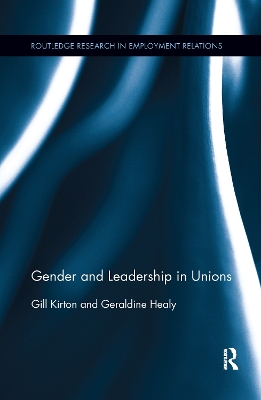Routledge Research in Employment Relations
4 total works
A comprehensive and critical review of the global scholarly literature on diversity, this book presents findings from original UK-based research involving in-depth organizational case studies, interviews, observation and documentary data from over fifty organizations.
Analyzing the findings from the perspective of key stakeholder groups - diversity practitioners, line-managers, trade union equality officers, workplace trade union representatives and employees, it addresses a range of questions, including:
- How is the diversity concept developing in the UK?
- Has the UK deconstructed and reconstructed the diversity concept to fit with the legal, social and economic context of UK organizations?
- How are organizations in the public and private sectors responding in practical terms to the diversity concept?
- What is the legacy of the traditional equal opportunity concept?
- What are the experiences of different organizational stakeholders of diversity management?
- Whose interests does diversity management serve?
Looking at many of the weaknesses associated with more traditional equal opportunity policy approaches, this book is excellent reading for all students of international business, entrepreneurship and small businesses.
Diversity Management in the UK: Organizational and Stakeholder Experiences
by Anne Marie Greene and Gill Kirton
Reflecting the increased attention to gender and women in the field of employment relations, there is now a growing international literature on women and trade unions. The interest in women as trade unionists arises partly from the fact that women comprise 40 percent of trade union membership in the USA and over 50 percent in the UK. Further, despite considerable overall union membership decline in both the UK and USA, more women than men are joining unions in both countries. Recognition of the importance of women to the survival and revival of trade union movements has in many cases produced an unprecedented commitment to equality and inclusion at the highest level. Yet the challenge is to ensure that this commitment is translated to action and improves the experience of women in their union and in their workplace.
Gender and Leadership in Trade Unions explores and evaluates the similarities and differences in equality strategies pursued by unions in the US and the UK. It assesses the conditions experienced by women union members and how these impact on their leadership, both potential and actual. Women have made gains in both countries within union leadership and decision-making structures, however, climbing the ladder to leadership positions remains far from a smooth process. In the trade union context, women face multiple barriers that resonate with the barriers facing aspiring women leaders in other organizational contexts, including the gendered division of domestic work; the organization and nature of women’s work; the organization and nature of trade union work and the masculine culture of trade unions. The discussion of women trade union leaders is situated more broadly within debates on governance, leadership and democracy within social justice activism.



